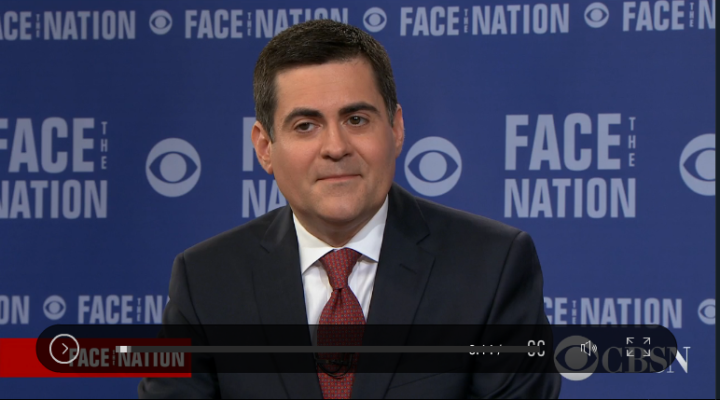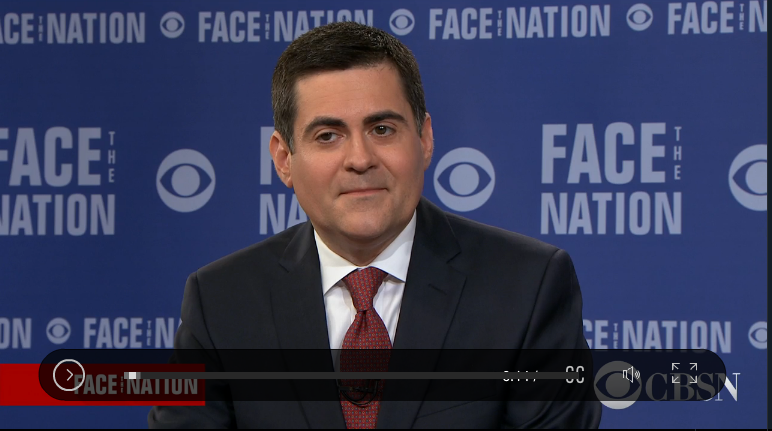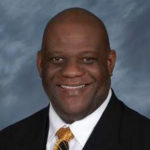A black Southern Baptist pastor says recent talk of firing Ethics and Religious Liberty Commission head Russell Moore sends a message to ethnic minorities they are welcome in the Southern Baptist Convention only if they toe the political line.
Dwight McKissic, pastor of Cornerstone Baptist Church in Arlington, Texas, said in a blog Dec. 24 that “the lynch mob in SBC life” going after Moore for his criticism of President-elect Donald Trump is taking cues from the Republican candidate, who during the campaign described Moore on Twitter as “truly a terrible representative of evangelicals” and a “nasty guy with no heart.”
McKissic, who before the election said he hadn’t voted for a Democrat for president since Jimmy Carter, said getting rid of Moore would establish the nation’s second-largest faith group behind Roman Catholics as “the Trump Baptist Convention” and consummate the denomination’s marriage to the Republican Party.
“We shouldn’t give Trump that kind of influence over our convention,” he said. “We shouldn’t by default say to the public we value loyalty to the Republican brand over a critical evaluation of a Republican nominee for president.”
McKissic said firing Moore would have more far-reaching consequences than most people realize, by defining the SBC as “also being Republican, or at least not publicly criticizing a Republican candidate.”
“Minorities tend not to be Republican because they view Democrats as being more sensitive to social and economic justice, equality and fairness issues,” McKissic said. “They also view these matters as life issues and equally as important as abortion and gay marriage issues.”
McKissic, sponsor of a resolution adopted at this year’s SBC annual meeting repudiating flying of the Confederate flag, said Moore is one of the few high-profile Southern Baptists with “a heartfelt identification and understanding of social justice issues from a minority perspective.”
“There are those who think that this backlash against him is rooted in his outspokenness on race issues and police brutality issues,” McKissic said.
“Russell Moore really feels our pain,” McKissic said. “In many ways he is being treated as a racial minority by the convention in this situation. So to fire Russell Moore is to say to minorities, you are only welcome in the SBC if you remain silent regarding your political views.”
Speculation about Moore’s job security erupted before Christmas when the Wall Street Journal published a story on backlash over his election-year criticism of Trump quoting megachurch pastors who said they might consider withholding funds from the ERLC.
McKissic, who in 2007 resigned from the Southwestern Baptist Theological Seminary board of trustees during a debate about “private prayer language” — a practice he said isn’t as controversial in African-American churches as it is for white, non-charismatic evangelicals — has criticized a lack of ethnic diversity in SBC leadership.
In recent years the convention has tried to distance itself from its history rooted in the segregationist South. Statistics show that one in five SBC congregations has a non-Anglo majority, and the number of African-American churches increased 82.7 percent between 1998 and 2011.
McKissic tells a story of visiting the SBC Executive Committee building in Nashville, Tenn., in 2007 and being told the highest-ranking African-American employee was the head custodian.
McKissic, who four years ago said Moore’s predecessor at the ERLC should have been fired for inflammatory comments about race and politics following the Trayvon Martin shooting, said Southern Baptist history bears witness to the dangers of American Christianity lacking a prophetic voice.
“When the majority of the SBC embraced the diabolical institution of slavery, we needed a Russell Moore, even if he was being paid by the SBC,” McKissic said. “When the majority of the SBC denied women the right to vote as messengers within the SBC annual meetings, and supported laws forbidding women the right to vote in the secular realm, we needed a Russell Moore. When the majority of the SBC voted to support Jim Crow laws and would not support Martin Luther King and the Civil Rights Movement, we needed a Russell Moore.”
McKissic said firing Moore would in effect “make the statement that the gift of prophecy is unwelcome among Southern Baptists if it conflicts with our politics.”
“Russell Moore would have gotten the same kind of treatment in SBC life had he spoken prophetically against slavery in 1845-1863 as he is getting now,” McKissic said.
Previous story:



